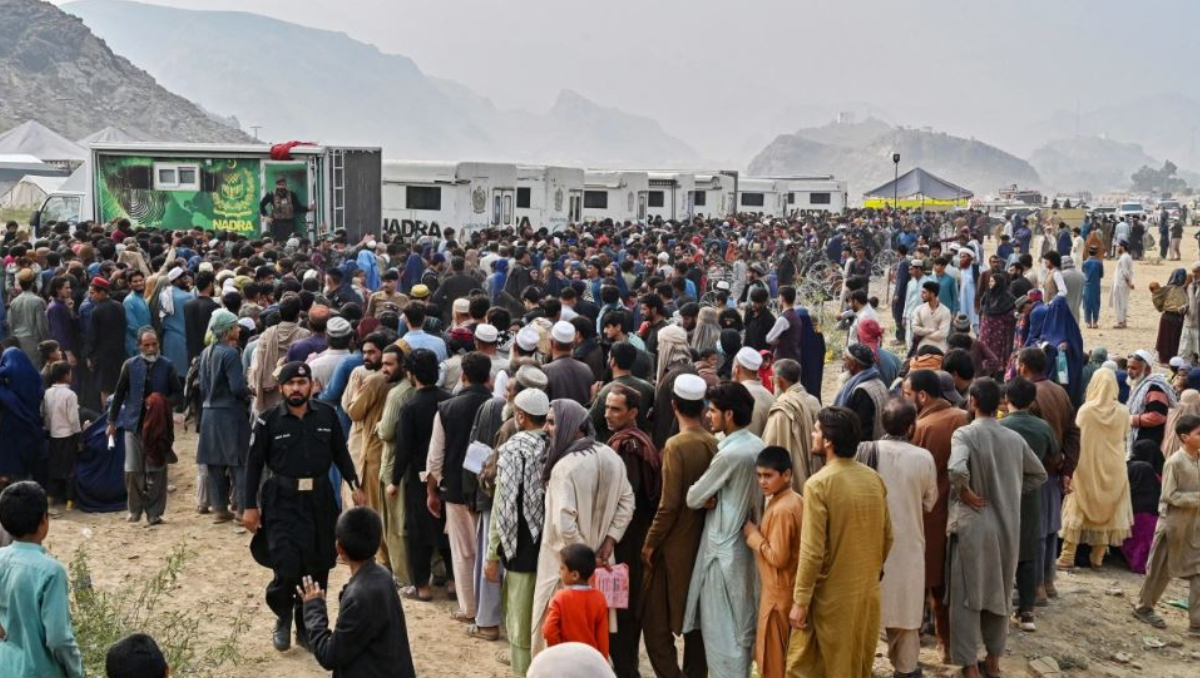Pakistan is forcefully deporting millions of Afghan Immigrants back to their origin. Approximately 200,000 Afghan nationals have already left Pakistan in the last two months, just ahead of the November 1 deadline.
In October, Pakistan set November 1 as the deadline for the expulsion of all unregistered immigrants, including hundreds of thousands of Afghans. It also cited security concerns, dismissing calls to reconsider from the United Nations, human rights organisations, and Western embassies.
Pakistani officials stated 140,322 foreigners had already left Pakistan voluntarily before the deadline. In the meantime, Pakistani authorities have restricted media coverage to the border crossing.
Source: nbc
How many Afghans do you think live in Pakistan?
The government estimates that 4 million Afghans are there in Pakistan, out of which 1.7 million Afghans are unregistered. During the decades of conflict in Afghanistan since the late 1970s, many people have fled. Another exodus resulted from the Taliban takeover following the US withdrawal in 2021.
Pakistan and Afghanistan’s neighbor, has seen people cross the border for safety for more than four decades, from the 1979 Soviet invasion to the Taliban’s recent return in 2021.
What are the reasons behind the forced migration?
The decision to forcefully deporting the unregistered immigrants, particularly Afghan nationals, has several implications. Terror attacks have increased in Pakistan, where the government points out a significant number of these attacks on Afghan nationals.
Intelligence report from the South Asian Terrorism Portal, implied that the country has experienced 418 terror attacks this year, an increase from the previous year’s total of 365 attacks. Since the beginning of the year, Pakistan has reported a total of 24 suicide attacks, 14 of which have been attributed to Afghan nationals. Concerns have been raised about Pakistan’s security as a result of this growing threat.
The escalation of a huge number of terrorist attacks urged Pakistan’s government to take action. The central ministry issued a stipulation to all unregistered migrants, telling them they must leave voluntarily or face deportation.
Furthermore, the Pakistani government has accused Afghanistan’s Taliban government for providing militant support that are responsible for these attacks. Tehreek-e-Taliban Pakistan (TTP), in particular, has been mentioned as an organization that is supported by the Taliban in Afghanistan. As a result of this situation, relations between Pakistan and the Afghan government have become stressed.
Tensions between Pakistan and Afghanistan, which share a 1,600-mile border, have risen in the last two years as a result of an increase in attacks on Pakistani security forces by the TTP, or Pakistani Taliban. Pakistan accuses Afghanistan of harbouring Islamist militants from a group that is distinct from the Afghan Taliban but shares similar ideologies.
According to the United Nations’ human rights office, the move could result in a “human rights catastrophe,” as families may be separated and those sent back may face arrest and torture in Afghanistan. Interim Prime Minister Anwaar-ul-Haq Kakar stated that “regardless of whether they are playing a good or bad role in society, our system has no way of identifying these individuals.”
Source: BBC
Faces of young and old stare out the window, perched above the heaps of furniture, firewood, cookers, and air conditioning units that judder precariously as the vehicles weave through traffic on their way to Afghanistan.
Human rights organizations and the United Nations have expressed concern about this move in a global discussion. Amnesty International, have criticized the deportation policy, pointing out that due to significant delays in the registration process, many new arrivals in Pakistan have been unable to obtain recognized identity documents. Pakistan is being yelled at worldwide for this crucial activity. But the government has defended its actions, claiming that they are in accordance with international norms and principles as well as the country’s sovereign domestic laws.
